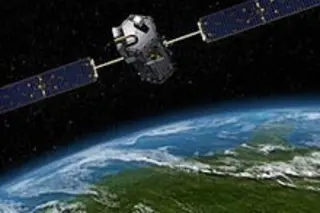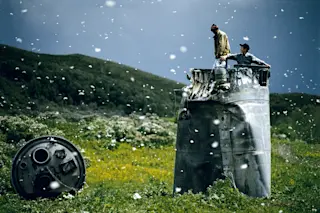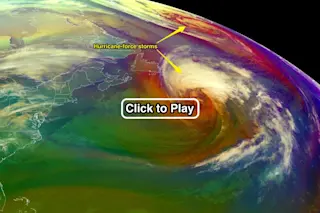The launch of the first satellite dedicated to studying carbon dioxide levels in the atmosphere has failed, NASA is reporting. Says NASA spokesman Steve Cole:
“The mission is lost.... At this point no one is exactly sure what the cause is” [Bloomberg].
The $278 million satellite, called the Orbiting Carbon Observatory, blasted off last night from California's Vanderberg Air Force Base at 1:51 a.m. local time aboard a Taurus XL rocket.
"Several minutes into the flight of the Taurus rocket carrying NASA's Orbiting Carbon Observatory spacecraft, launch managers declared a contingency after the payload fairing failed to separate," the space agency said in a statement [Reuters].
The fairing is a clamshell-like structure that shelters the payload as the rocket screams upward through the atmosphere. The Taurus XL is the
smallest ground-launched rocket currently in use by the US space agency. The rocket has flown eight times, with two failures including ...





